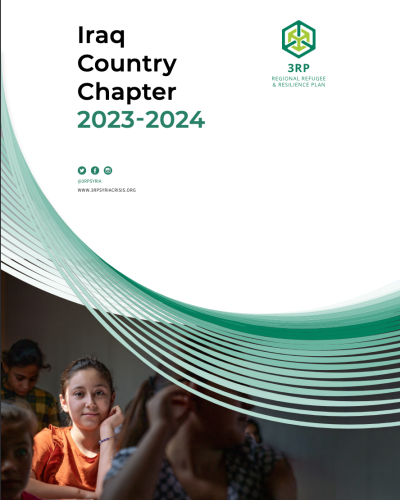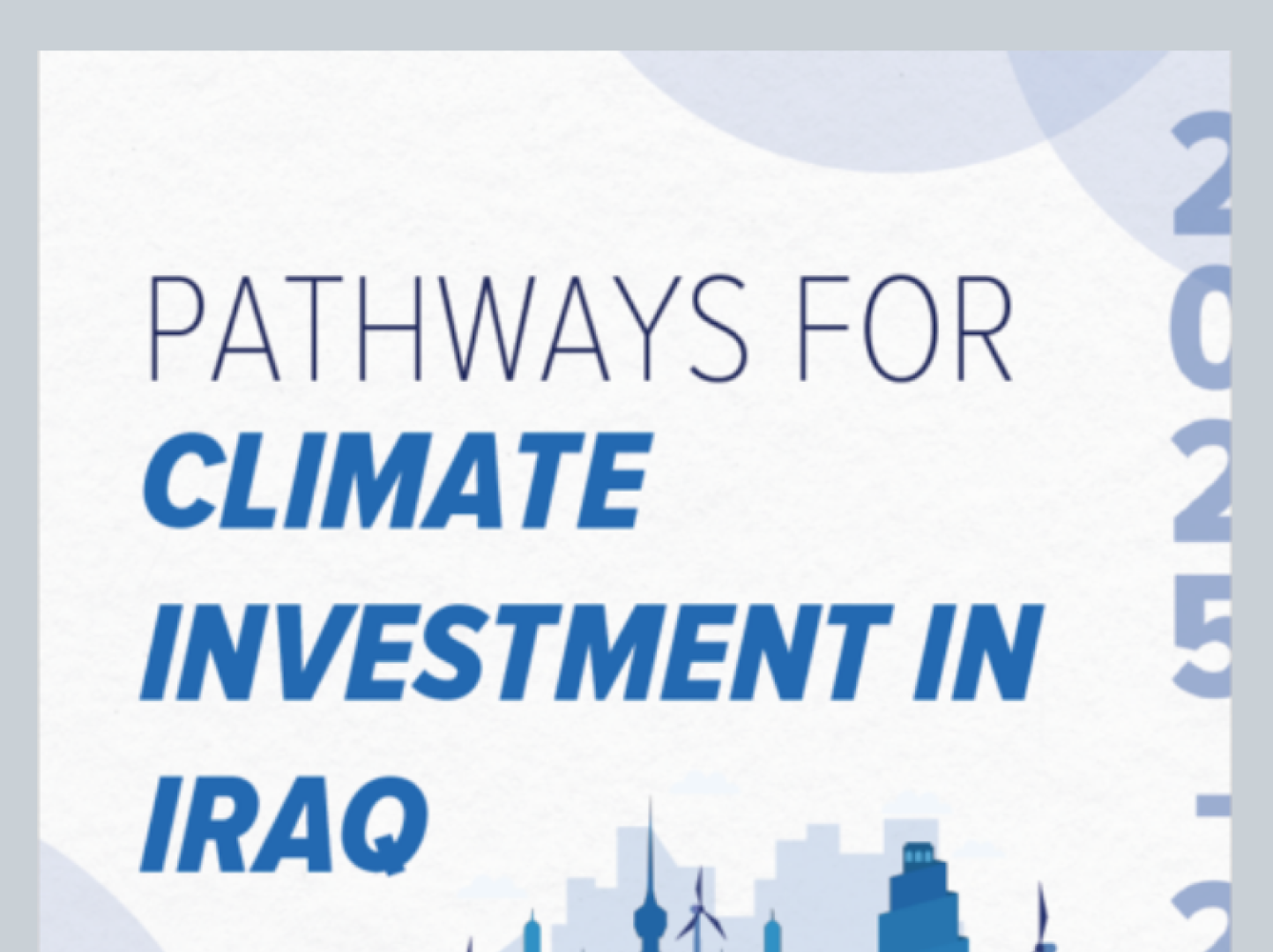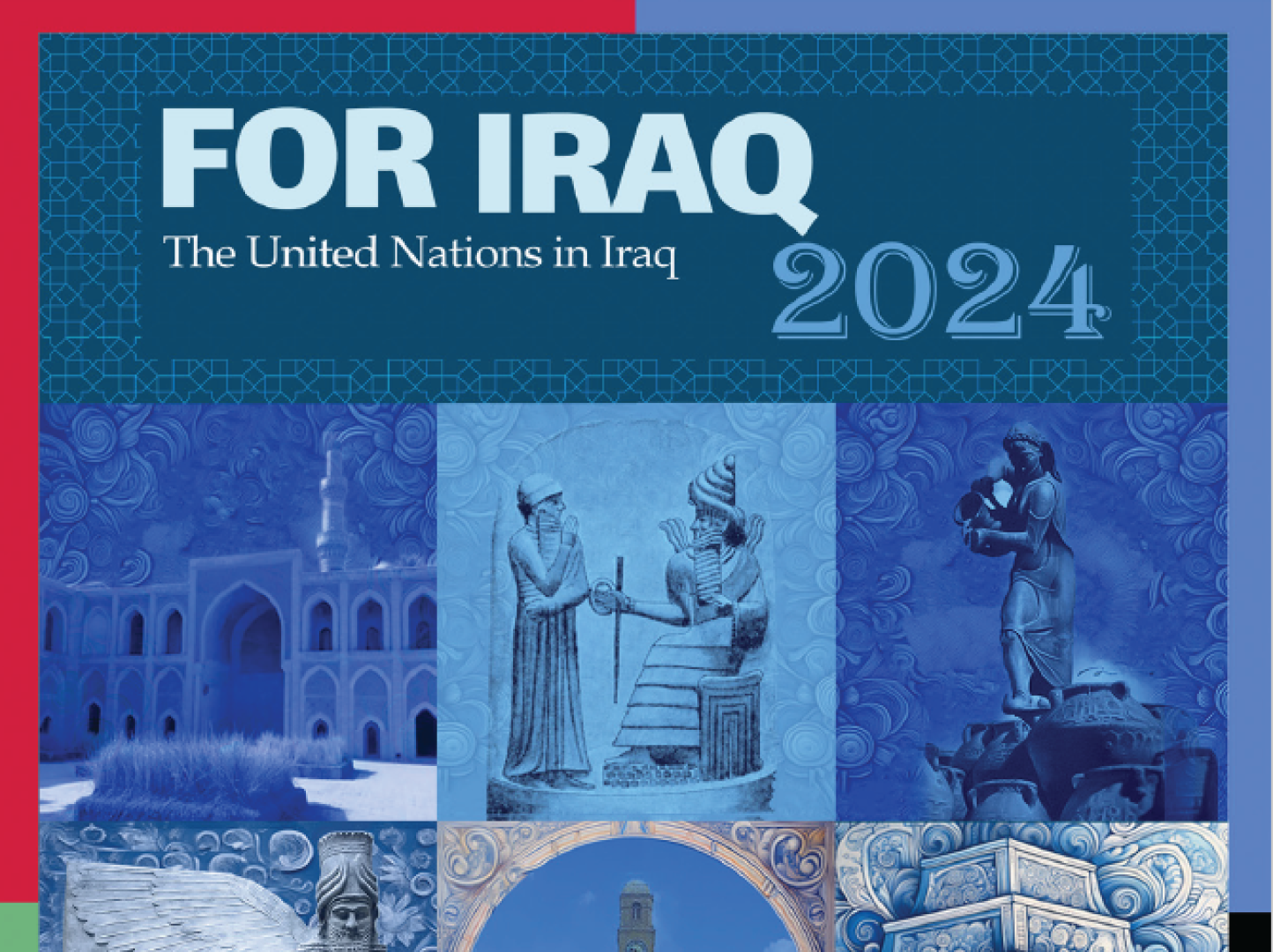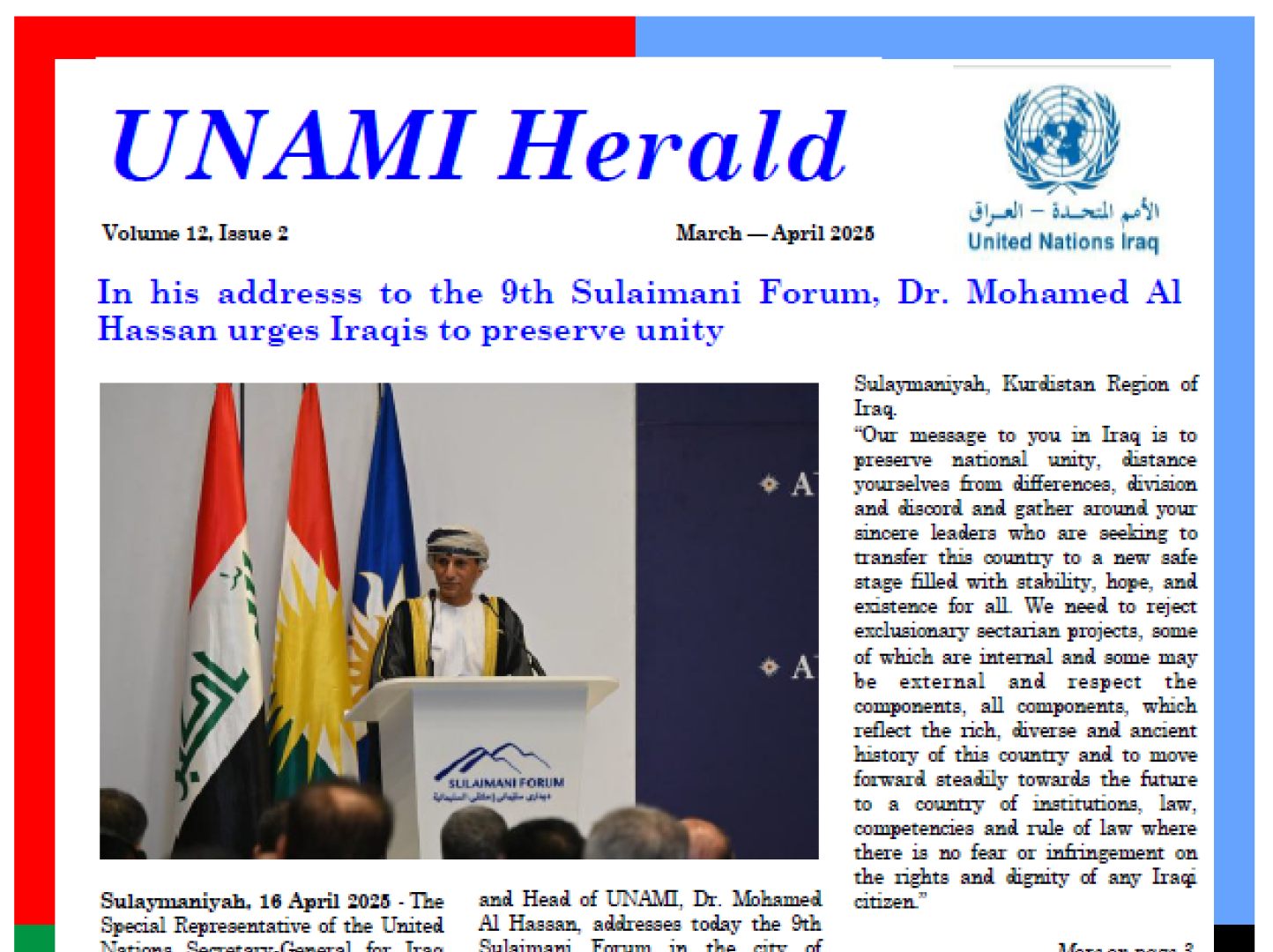3RP Iraq Country Chapter 2023-2024

Vision Statement
In Iraq, over the years, the inclusion of refugees into public services and policies has been gradually achieved in almost all sectors. Refugees have access to public services and have their rights fulfilled on par with the local community. The majority of refugees are hosted in the Kurdistan Region of Iraq (KRI), of which 36 per cent are in camp settings. Almost all of them are of Kurdish origin which may explain the high degree of acceptance by both authorities and the local population and thus, of inclusion. The Kurdistan Regional Government (KRG) has been exemplary in including refugees in its public services, such as access to health and now education, in line with the objectives of the Global Compact on Refugees (GCR) and of the 3RP.
As has been reflected in the Iraq 3RP Chapters over the last years, remaining partners have shifted, where feasible, from parallel humanitarian interventions to programs that strengthen the resilience of affected communities and that support authorities to enhance and expand their public service delivery. Therefore, in the context of Iraq, individual humanitarian interventions are largely no longer the most relevant and appropriate approach to complete refugee inclusion. This may in particular explain the sharp decrease of engagement by 3RP (humanitarian) partners.
Development partners have indeed preferred to work bilaterally with relevant line Ministries or decentralised service providers to finalise refugee inclusion in public policies, which has proven to be the appropriate approach given its positive results.
This Iraq 3RP Chapter covers 2023 and 2024 and includes an overview of the critical remaining humanitarian and protection needs and activities, while focusing on further advancing, if not completing, the inclusion agenda through advocacy and capacity building activities. The Chapter focuses on the remaining steps to further advance government ownership and inclusion of refugees in government-led policies, programmes and coordination structures.
The latter also aligns with the de-activation of the cluster coordination mechanisms linked to the Humanitarian Response Plan (HRP) covering internally displaced Iraqis (IDPs) as of January 2023. Inter-agency humanitarian interventions for the IDP response have been handed over to government counterparts and other relevant development partners, which on the side of the UN, are coordinated under the UN Strategic Development Cooperation Framework (UNSDCF). As highlighted in the 3RP 2022 chapter, it is a key priority that the 3RP aligns with the coordination mechanisms set up under this HRP transition, especially as a number of refugee actors were double hatting their coordination functions for refugees and IDPs through a unique mechanism. With the end of the clusters, the government, especially federal authorities will coordinate amongst themselves, including the KRG, and the UN the development response. However, as noted earlier, in the KR-I, the coordination with relevant public authorities will continue to be led bilaterally by relevant partners, mainly UN Agencies, in the sectors where refugees are yet to be fully included in the government policies and services, mainly education and in relation with public services in refugee camps.
3RP partners will continue to work with, and support, the KRG and Government of Iraq (GoI), including through their support under the framework of the UNSDCF. The mid-term review process of the UNSDCF in 2023 will assess progress, discuss achievements and good practices and modify where necessary the remaining programmes through 2024. 3RP partners will use this momentum to further ensure the inclusion of refugee inclusion in this process. This includes advocacy efforts with development partners and donors alike, to utilise development funding suitable for the context of Iraq, as well as sharing of relevant data and analysis to help partners capture the specific needs and opportunities of refugees so as to inform their programmatic and other interventions.
The objectives and activities of the Iraq 3RP Chapter are strategically aligned with, and contributing, to the KRG Vision 2030, SDGs and the UNSDCF. This alignment will support further engagement and advocacy in 2023 with national and development actors to advance refugees’ inclusion in their planning, programming, relevant coordination fora and M&E mechanism.
Based on the above, it is timely to phase out of the 3RP framework in the context of Iraq to reflect the current operational and inter-agency coordination context, not least because the 3RP interventions heavily rely on one single appealing partner (UNHCR). This Chapter will present the revised coordination structure in Iraq and the remaining steps required to include refugees in relevant development frameworks. It reflects consultations that took place with regional and national stakeholders throughout 2022.
These changes are not without challenges. The foreseen decrease in global humanitarian funding, including for Iraq, remains a risk and might jeopardize the capacity of humanitarian partners to successfully further national ownership, which is called for given the few remaining areas where refugee inclusion is yet to be achieved. Iraq is facing challenges to shift from recovery to long-term sustainable development despite having the necessary fiscal space and what appears as renewed political commitments. Weak institutional capacity and rule of law, political instability, over-dependence on the civil service as the main employability scheme, poor private sector diversification and risks posed by climate change remain of concern. These risks should be mitigated by responsible disengagement, through continued support from donor countries, development actors, the private sector and international financial institutions to the KRG in particular as well as the GoI and 3RP partners. This will allow 3RP partners to maintain and enhance the protection space while building on existing capacities and advance and complete access to public services and socio-economic inclusion of refugees.
Addressing these challenges, as will also be elaborated upon below, falls outside the scope of the 3RP. However, while these challenges are being addressed, there are key opportunities to enhance refugee inclusion given the current context. The revised strategy builds on advances already made in relation to refugee inclusion and is aligned to the government ownership which is already the practice. Additionally, it allows 3RP partners to focus their efforts on strengthening the capacities of relevant authorities to continue delivering public services, and closing the gap where inclusion has not been completed, versus continuing parallel humanitarian interventions.
This 3RP Chapter has been developed by UNHCR, jointly with the Inter-Sector Working Group (ISWG) and is endorsed by the ISWG. Consultations on the content have taken place with the KRG, as well as key donors.




